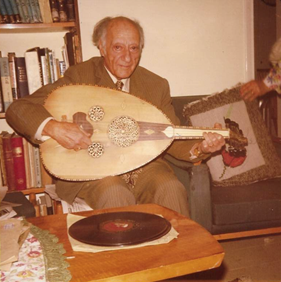Oedoen Partos (Budapest, 1907 – Tel Aviv 1977, immigrated in 1938) had an impact on Israeli musical life immediately after his arrival, and throughout his lifetime. He was the first laureate of the Israel Prize (1954) among Israeli composers, a prize since given to only eleven composers of art music. An outstanding violinist and violist, and exceptional musician in general, he was the principal violist of the Israel Philharmonic Orchestra between 1938-1956, and the director of the Tel Aviv Conservatory and Academy of Music (later The Rubin Israel Academy of Music at Tel Aviv University) between 1951-1977. He also traveled extensively as an adjudicator, lecturer and teacher.
A student of Kodály in the early 1920s, he emulated the Bartók-Kodály approach to folklorism, developed and re-interpreted it through his discussions with his colleagues Boskovich and Seter, and influenced the second generation of Israeli composers and musicians. His early, often-performed Concertino for strings (1932) was indeed Bartókian, but in his pieces written after his immigration, such as Hezionot (Visions, for flute, piano and strings, 1957), and Makamat (for flute and string quartet, 1959) he approached his original, local style through the synthesis of Yemenite tunes he transcribed from Bracha Zefira.
Music in






